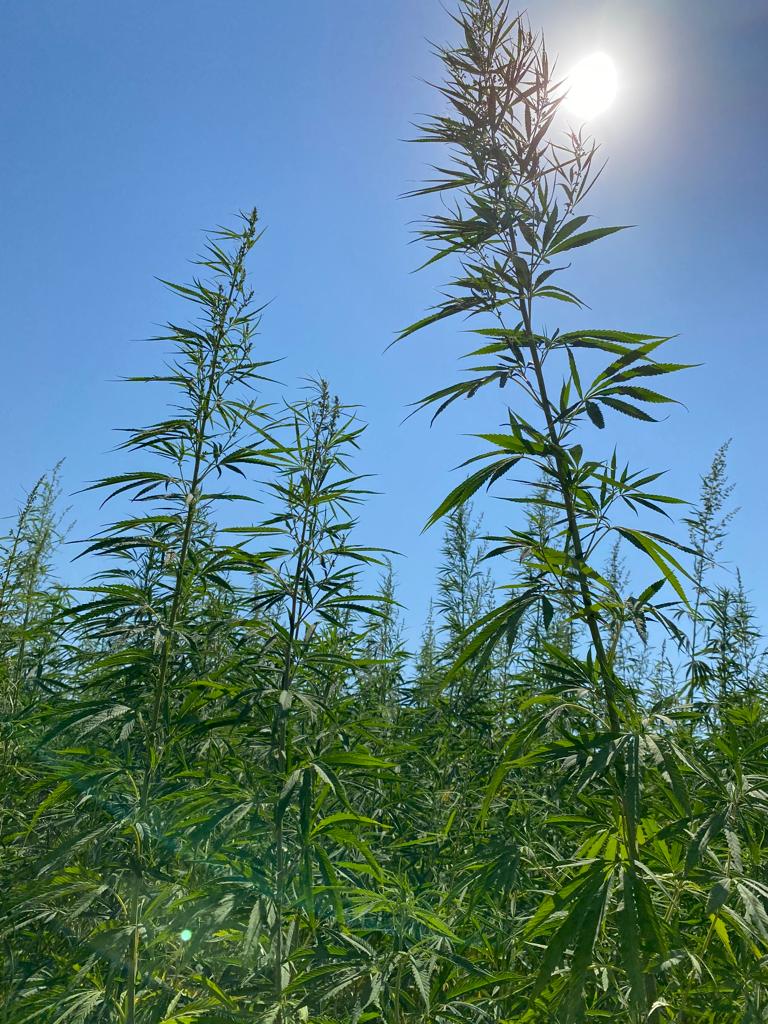By being in the sustainable textile industry long before we are constantly striving to find new and innovative ways to reduce our carbon footprint, conserve water, reduce waste, and promote sustainable sourcing practices.
This not only helps us to protect the environment but also supports the long-term viability of the communities in which we operate.
At Egedeniz Textile, we take pride in our regenerative approach to farming, including the cultivation of hemp in the beautiful region of Izmir, Turkey. Our hemp farms, located just 45 km away from our headquarters in Mendres, Izmir, are committed to producing sustainable and high-quality hemp fiber for the textile industry.

Egedeniz Textile grows Turkish hemp fibers for high-quality textiles. Our careful harvesting before flowering ensures optimal fiber performance and easy blending with other fibers.
Turkish hemp fiber helps mitigate climate change by actively contributing to carbon farming through exceptional carbon sequestration capabilities.
We promote soil health and biodiversity by growing hemp by applying regenerative practices and through its deep roots, preventing erosion, and enhancing soil fertility. Hemp crops attract beneficial insects, supporting sustainable and diverse ecosystems.
Empowering Sustainable Solutions
Hemp stands as a remarkable sustainable fiber with exceptional environmental benefits. As a versatile and resilient plant, hemp offers numerous advantages that make it an ideal choice for sustainable textile production.
First and foremost, hemp is renowned for its exceptional carbon sequestration capabilities. During its rapid growth cycle, hemp absorbs a significant amount of carbon dioxide from the atmosphere, helping to mitigate greenhouse gas emissions and combat climate change. In fact, hemp has been found to sequester more carbon per acre than many other crops or trees, making it a valuable asset in carbon farming and sustainable agriculture practices.
Furthermore, hemp is a highly resource-efficient crop. It requires minimal water compared to conventional crops like cotton, making it a viable option in regions prone to drought or water scarcity. Hemp also thrives in diverse soil conditions, reducing the need for synthetic fertilizers and pesticides. Its deep root system helps prevent soil erosion, improves soil structure, and promotes biodiversity, contributing to overall soil health and regeneration.
One of the key advantages of hemp as a sustainable fiber is its low environmental impact throughout its lifecycle. Hemp cultivation does not rely on genetically modified organisms (GMOs), and it naturally resists pests and diseases, eliminating the need for chemical interventions. The plant’s dense growth and leafy structure suppress weed growth, minimizing the use of herbicides. This organic and eco-friendly cultivation process translates into hemp fibers that are free from harmful chemicals and residues.